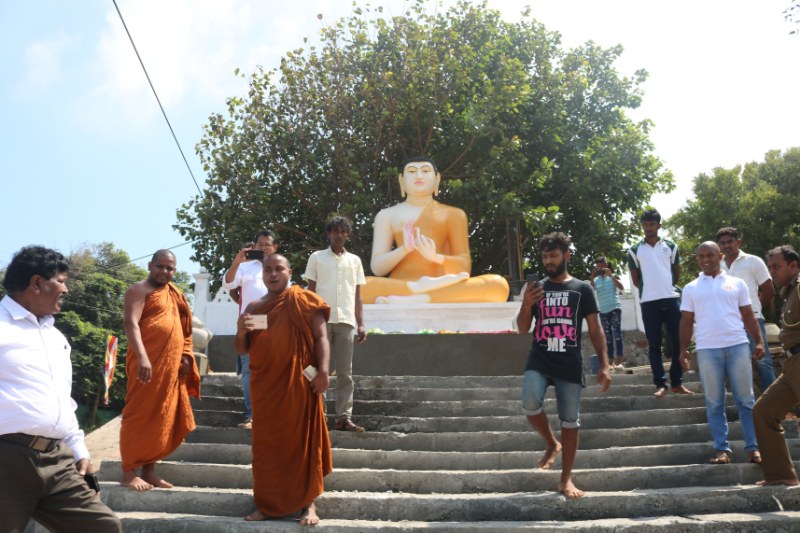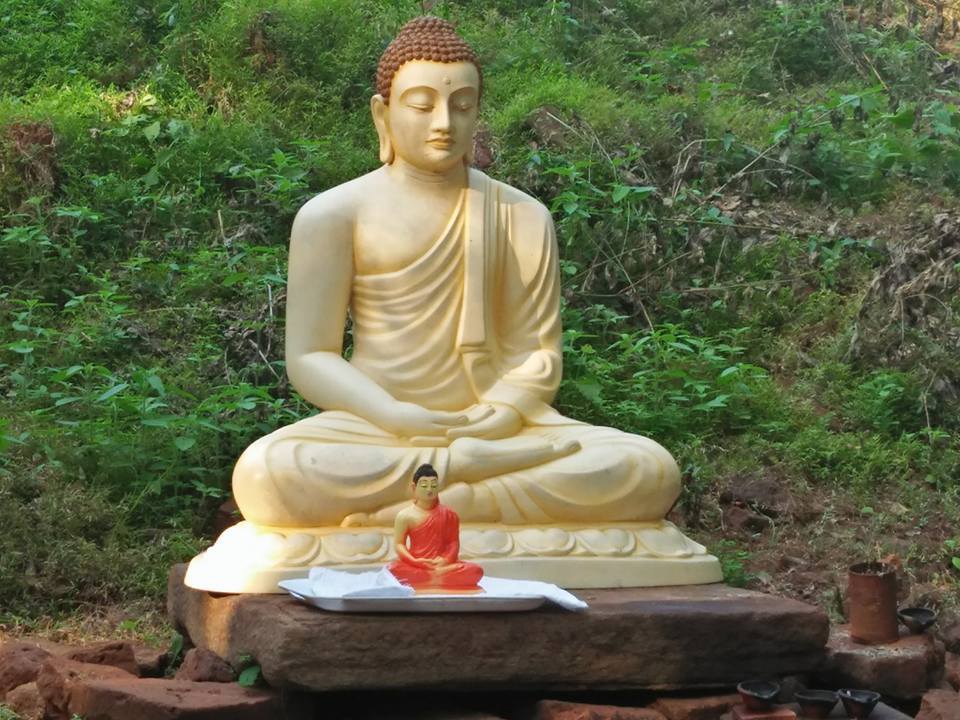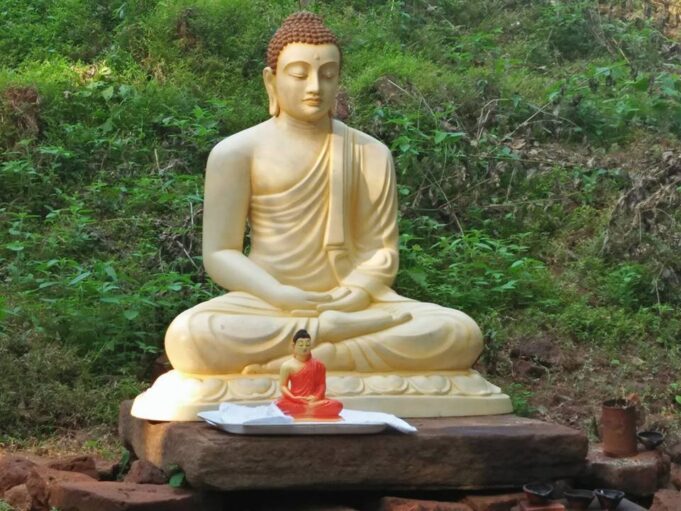The forceful erection of Singhal Buddha statues by extremist groups has emerged as a pressing issue for Tamil villages situated near their homeland borders. These statues, bearing resemblance to armed military figures intruding into homes, have appeared overnight in various locations, including Tamil temples that hold deep religious significance for the Tamil people. The aggressive seizure of land has sparked protests and demonstrations among affected Tamil communities.

Mullaitivu, in particular, has witnessed a surge in Singhal Buddha statues encroaching upon Tamil territories. Villages like Kokkuthoduvaai, Kokkilai, and Karunaddukkeni have seen the installation of lion statues, water tanks, and Maanavari statues. As a result, Tamil farmers with ancestral lands encompassed by these statues are being displaced. The Sinhala government and affiliated organizations actively support the placement of these statues and have implemented preservation initiatives.
This distressing situation has dire implications for our people, jeopardizing their livelihoods and raising significant concerns for future generations. The encroachment of these statues into the forest reserves of Mullaitivu exacerbates the problem by endangering wildlife and disrupting the ecological balance. Furthermore, the construction of reservoirs, bunds, and check dams associated with these statues is adversely affecting the forest ecosystem and its native species. Areas such as Avayan Kulam, Mundirikkai Kulam, and Marichchukatti Kulam have already witnessed the destruction of their interconnected ponds. This destruction, coupled with encroachment upon vital agricultural lands, poses a severe threat to the agricultural sector of the Mullaitivu district.

The encroachment of these statues not only poses a threat to the Tamil people’s heritage and cultural identity but also raises doubts about the intentions of the administrative authority in Mullaitivu. It calls into question their commitment to preserving the region’s rich cultural heritage and safeguarding the rights of the Tamil people.
These actions are part of a systematic endeavor to undermine the Tamil homeland by imposing Singhal Buddhist ideologies and promoting majoritarian dominance. It is crucial to emphasize that, given the current political climate, the 9th Amendment of Sri Lanka’s Constitution should prioritize the protection of Tamil heritage and guarantee the religious freedom of the Tamil people. The Tamil homeland should not serve as a breeding ground for encroachments of Singhal Buddhist nature, as such actions contradict the principles of coexistence and ethnic harmony.






